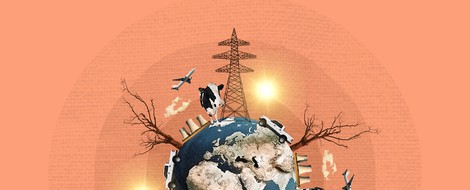Your podcast discovery platform
Curious minds select the most fascinating podcasts from around the world. Discover hand-piqd audio recommendations on your favorite topics.

piqer for: Climate and Environment Global finds
Andrea is a writer and researcher based out of Chicago. Andrea has a Bachelor's degree in environmental science from The Ohio State University and a Master's in Environmental Planning and Management at National Taiwan University, where she specialized in climate adaptation and urbanization. She writes for TaiwaneseAmerican.org, and sends out a biweekly newsletter which includes articles on politics, environment, identity, and intersections of race, class, and gender (http://eepurl.com/bPv-F5).
The Unsustainable Whiteness of Environmentalism
Aaron Mair and his family lived downwind of an incinerator. " Black flakes coated his car, the house, “everything,” he remembers. The air was acrid. Paint peeled from outside surfaces, like street signs and his deck door. Five or more years of chronic exposure caused both his daughters to develop asthma symptoms." But when he asked for help from the Sierra Club, a large, established environmental organization, they refused to provide any support.
Mair's situation exemplifies the issues that mainstream environmental organizations have in addressing issues beyond "traditional" green causes like conservation. Now, more and more are recognizing the importance of environmental justice and addressing problems that intersect race, class, and gender. But enacting that knowledge has been troubled road. Most environmental groups are still predominately white, and even more so when you look at leadership positions. But there are signs of progress. River Network and Earthjustice both have high percentages of minority staff, and work with many minority communities. And after successfully fighting to shut down the incinerator near his home, Mair decided to work at the Sierra Club in hopes of changing the culture, and to encourage groups like the Sierra Club to hire more diversely.
“White privilege and racism within the broader environmental movement is existent and pervasive,” Mair says. “The current is not maintainable — we’re becoming a brown nation. It’s not about a one-off, it’s about sustainability.”
